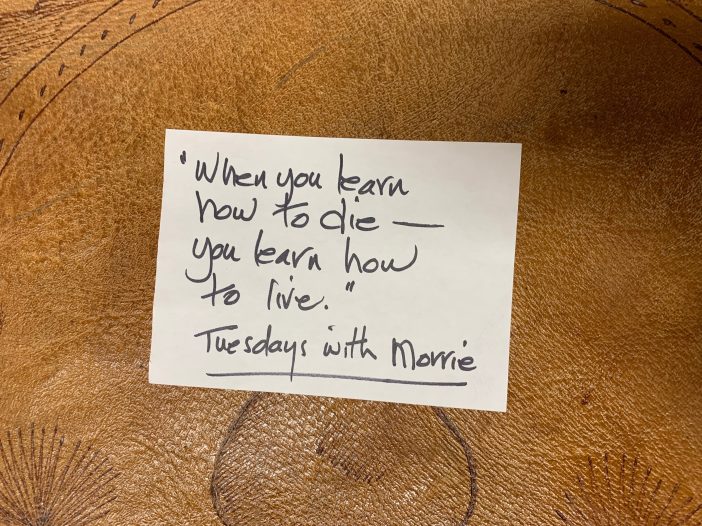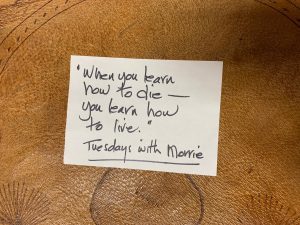
This post is for anyone who is or has experienced loss. And if you are in the position to influence the lives of others, then you need to read this post–for sure.
An unusual theme that emerged that became a chapter in my book Leading with Wisdom: Sage Advice for 100 Experts. The theme was this: leaders need to understand death and loss to be effective. This was a surprising finding so I probed the Sages for their rationale.
Basically, death is a part of life and death involves loss and loss includes grieving. We are experiencing many losses as industries are dying, companies are closing, and jobs are going away. Leaders need to understand their own coping mechanisms before they can help others through the grieving process. Grief manifests in various ways, but it has a negative impact on productivity, satisfaction, and growth.
Even though death is a part of life, most people do not like to think about death and certainly not talk about death. For over a decade, I have been integrating material and exercises on death and dying and it has proven to be a significant growth experience for all of us. One of the books we read aloud is Tuesdays with Morrie by Mitch Albom. Professors tend to love this book for many reasons.
But my favorite quote in the book is when Morrie says on page 82 of my book:
“When you learn how to die, you learn how to live.”
Embracing one’s mortality is a key component of becoming a sage and aging with grace and wisdom. But it also help us become more compassionate and understanding with others through the grief process.
Recently, I went to see the new documentary about Linda Ronstadt. It really took me back to college. I enjoyed all of it, but Linda Ronstadt, who is now living with Parkinson’s, made this statement and I paraphrase:
“The question is not about life after death, but life before death knowing that death is imminent.”
Then last week on CBS Sunday Morning, there was a segment on Olivia Newton-John.
When I was in college, I always wanted to copy whatever hairstyle Newton-John had at the time. No luck.
It turns out that what started out as breast cancer years ago has reappeared as cancer for the third time. The interview made it sound very serious. But Newton-John put it this way: Newton-John said, “Why me? has never been a part of it. But I never felt victimized. I never felt, ‘Why not?’ Maybe deep down I knew there was a reason or a purpose for it. Or maybe I needed to create one to make it okay for myself. Because, again, it’s a decision – How am I gonna deal with it? You choose.” (click here)
Life is a really a series of choices. How we perceive events, people, places is a choice. How we decide to react and behave is a choice. How we treat others is a choice. We can learn from the choices of others. My conclusion after watching the Ronstadt documentary and from listening to Newton-John is that they are role models of how to live with death.
“I’m on the last great journey here and people want me to tell them what to pack.” Tuesdays with Morrie
“Leadership is not about WHAT you do, but WHO you are.” Frances Hesselbein
So who are you?
Who are you as a leader?
Would you follow yourself?

